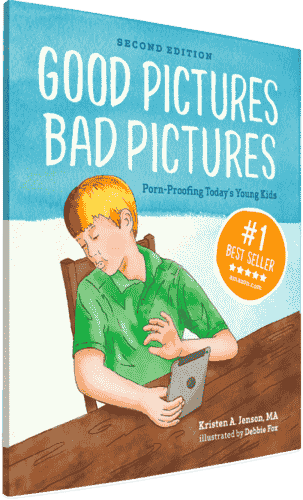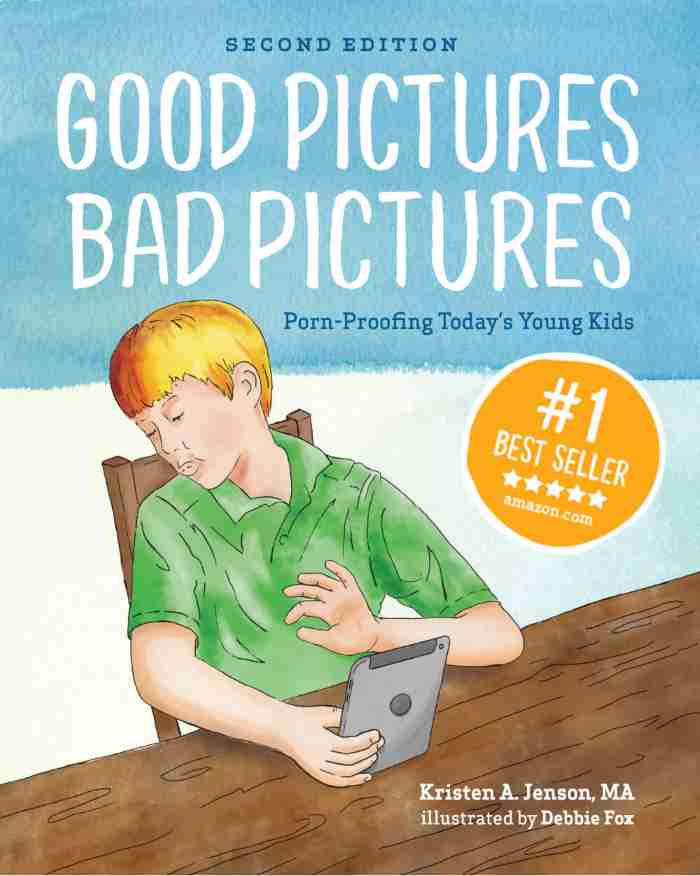

3 Secrets to Porn-Immune Kids
How do you immunize kids against porn? How do you porn-proof them so your kids stay safe online?
It's no different than the many other dangers you train your kids to deal with--first you warn them, but then you've got to practice "what you preach" so they can react appropriately when they are exposed.
It's kind of like a fire drill. First you teach them about the potential for danger; then you teach them how to get out of the house safely.
Beyond Warning

I believe that warning them is a great first step, and a boatload of kudos to you proactive parents who open a dialogue with your kids about pornography.
But may I suggest that you don't stop there?
Arm your kids with a warning, and then follow up with the skills they need to protect their brains. It's like building any kind of immunity--first you need the knowledge about good nutrition, exercise, cleanliness, and medical options, but then you've actually got to practice those good habits until they become skills.
Media defense skills empower kids to reject pornography and keep it from dominating their thoughts.
When bullies taunted me at school, my mom gave me some tools to deal with them. (She happens to be one of the funniest people you'll ever meet. In fact, once her smart-alecky humor almost got us kicked off a tour bus in Hawaii! But that's another story.) The witty verbal retorts she recommended often left my tormentors scratching their heads and looking dumbfounded. Pretty soon, the bullies left me alone. I was grateful for my mom’s bullying defense skills.
[Update: A few people have asked me for my mom's advice in fending off bullies. I offer this not as professional advice that will work in every situation, but simply to share what worked for me. My mom said to "kill them with kindness." Be nice. Don't get angry. Don't react the way they want you to react. She said that if they can't get you upset, they'll lose interest. Having said that, bullying today isn't what it was a few decades ago. I'm not sure the witty, somewhat sarcastic replies (often back-handed compliments) I used then would be a good idea to use in every situation today. It seems like today's kids are living in an emotional war-zone. I'm not an expert in this area, but I'm sure it helps kids when their parents offer praise and affirmation at home so kids can better handle the abuse they may get at school.]
[[CTA]]
Adults Underestimate the Pull of Porn
Even good kids who have had plenty of warnings to stay away from pornography still succumb. A study out of Europe documents what I believe is true the world over--parents simply underestimate their kids' online exposure to pornography. They underestimate the enticing pull of these images--especially for kids who don't know how to deal with the shocking memories they create.
Media Defense Skills
So here are three super simple, but super powerful, media defense skills to help kids supercharge their immunity to porn.

1. You've got TWO brains! Teaching kids they have two brains--the feeling brain and the thinking brain--is empowering for all kinds of growing up skills (which we explain in greater detail in Good Pictures Bad Pictures, a book to read with your children). The feeling brain is all about instinct, appetites and desires, and all of these are critical to survival. Pornography activates the feeling brain and, over time, can give it power to hijack the thinking brain—that part of the brain that understands consequences and puts the brake on our appetites. It may be helpful for kids to see their thinking brain as a super hero that needs to triumph over their feeling brain, the brain that is very curious about seeing pictures of naked people. Read more about teaching kids that they have two brains in my post: You Have Two Brains!

2. Name it when you see it. “That’s pornography!” is a powerful phrase because it activates the pre-frontal cortex and revs up the thinking brain to take charge. If a child looks at a pornographic picture and thinks, “Wow! She’s exciting!” or “He’s hot!”—this response can easily lead to looking for more porn. But if kids are trained to say, “That’s pornography!” (and can practice saying it with their family), it wakes them up to the danger of what they’re seeing and the importance of rejecting it immediately. Read more about the power of this skill in my post entitled How to Avoid the Slippery Slope of Gateway Porn.

3. Practice the art of distraction. Pornographic images are extremely memorable. Especially for kids whose mirror neurons make the images feel all the more real. So when kids see anything that arouses their interest (it could be a scantily clad actress in a movie or a model in a bikini), those images are hard to forget. They keep popping up and enticing a child to look for more. Kids need to know this will happen and be prepared to distract themselves (or to get you to help them) every time the images reappear. It’s especially helpful to engage in something physical that requires their mind’s full attention. As they practice the art of distraction, those images will begin to fade as the neural pathway to that image erodes and weakens. Find out more about this skill in my post: Teach Kids Two Ways to “Forget” Porn.
These Skills Work for Me!
It's ironic (but not surprising) that as I've done research online for our read-aloud book, Good Pictures Bad Pictures, I've been exposed to more porn. Thankfully, these same media defense skills work for adults, too! By practicing them, those images have faded from my memory.
Have you taught your kids about pornography and how to manage their thoughts? How have your kids responded?



Good Pictures Bad Pictures
"I really like the no-shame approach the author takes. It's so much more than just 'don't watch or look at porn.' It gave my children a real understanding about the brain and its natural response to pornography, how it can affect you if you look at it, and how to be prepared when you do come across it (since, let's face it... it's gonna happen at some point)." -Amazon Review by D.O.









